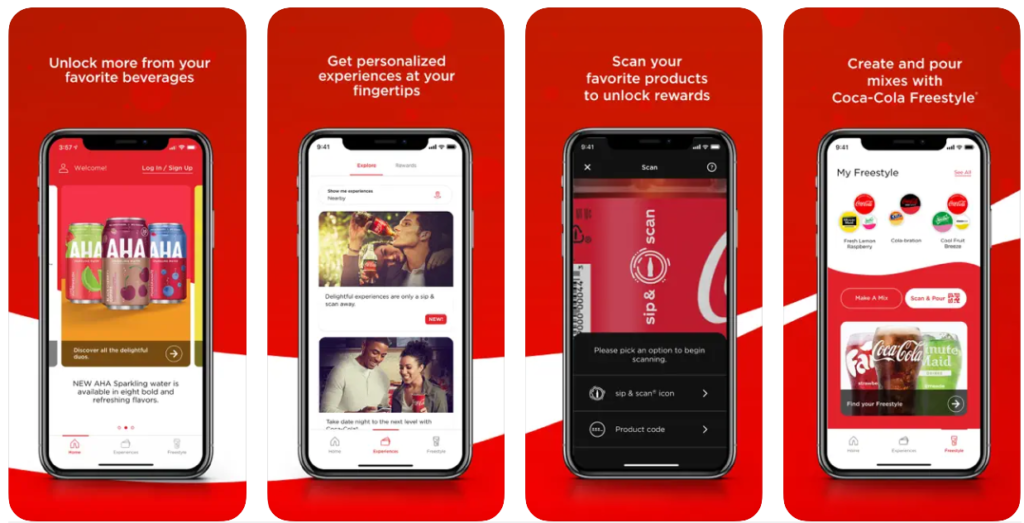The use of marketing concepts by businesses in one or more other countries is known as international marketing. Due to advancements in global markets, companies may now operate in practically any nation. Global marketing is an essential exchange of products and services across countries. Organizing and carrying out the pricing, advertising, and delivery of goods and services applies to the entire world.
Companies today are free to promote internationally rather than only within their boundaries. In addition, the economies are growing and making room for more aggressive marketing due to the customers’ changing needs, choices, interests, and tastes. Therefore, businesses must act quickly to meet client requests through well-defined business models.
How We Define International Marketing?
Global marketing, referred to as foreign markets, entails promoting goods to consumers throughout the globe. In other terms, it refers to any cross-border marketing effort. The development, pricing, advertising, and circulation of ideas, products, and services are all transnational processes planned and carried out to produce an arrangement that fulfils individual and corporate goals, per the American Marketing Association.
It resembles export management in specific ways. However, managing exports only entails controlling the aspects of the supply chain from the host nation to the guest nation. Contrarily, global trade includes people, financial, and production-related operations. Additionally, it involves several post-sales tasks.
International marketing has different difficulties than domestic marketing. First, since most advertisers are unfamiliar with foreign environments, they must thoroughly conduct market research on where they want to operate. The difficulties might be:
- legal restrictions on competitiveness
- Public Sector Control
- Different Consumer Behavior
- Environmental aspects like the weather
Global marketing executives adjust to the local circumstances and work to make their operations in the nation run more smoothly and with apparent results. Since the majority of the elements mentioned earlier are outside of the marketers’ control, managing all of them to produce a favourable market is all but unattainable. Therefore, instead of concentrating on factors beyond their control, advertisers should focus more on those they can influence.
Marketing is fascinating in the global market because marketers must adjust their product, price, advancement, allocation, and research strategies while considering the unexpected market factors of competition, world affairs, laws, consumer behaviour, and new tech to attain their marketing goals.
International Marketing − Overview
The potential for corporate development may be increased and improved with the aid of foreign markets. The definition of “global marketing” would be the trade of products, and international trade is the exchange to satisfy client needs. It also entails determining the target market and doing consumer research abroad.
It provides a more extensive consumer base and may stave against a possible economic slump. Additionally, global marketing makes it possible to effectively use excess output and foster ties with other companies worldwide. Additionally, it offers job possibilities for the host nation.
The following are the primary sources of foreign marketing:
- Corporations with a global reach (MNCs) An entity known as a multinational company (MNC) secures the manufacture of services and goods in one or more nations other than its own. Such firms often have a centralized corporate headquarters where they organize worldwide management in addition to offices, support desks, or industrial setups spread throughout several countries.
- Exporters: These are the overseas merchants who operate legally in their native nation to sell goods and render services.
- A public accounting firm best exemplifies a service organization. A service business makes money by dealing in services rather than tangible goods. The preparation of income tax returns, the provision of audit work, and the upkeep of bank records all result in profit here.
Many businesses think their goals will be constrained if they focus on a single economy, such as the competitive global economy. As a result, these businesses are constantly searching the globe for more outstanding alternatives to enhance their market position.
What Are the Types of International Marketing?
All the elements of contemporary marketing characterize international marketing. The latter, however, seeks to meet the demands of customers worldwide. Thus, it crosses international boundaries. Export or licensing is typically the first step for multinational enterprises wishing to sell their goods or services in a new nation. Along with these choices, supply chains, joint ventures, and foreign investment are different forms of worldwide marketing (FID). Let’s investigate further.
Export
Exporting is the act of sending products or services to a foreign government. Companies who want to grow internationally frequently think about exporting first. That’s not shocking, either.
Exporting has the least risk compared to our list’s other foreign marketing strategies. It is the least affected by the company’s human resources administration.
Licensing
A corporation—also referred to as the license holder of a multinational entity- has the right to utilize its trade secrets through a licensing agreement. The typical duration is set, and the licensor is compensated with royalties.
In the United States, there are several instances of intellectual property licensing. These cover trade names, manufacturing techniques, copyrights, and trademarks. Disney, Iconix Trademark Holdings, and Warner Bros. are a few of the largest global owners.
Franchising
Like licensing, franchising entails the holding company allowing a foreign company to conduct business under its brand. On the other hand, franchises typically operate under more stringent regulations than licensed businesses.
Additionally, businesses that provide services like hotels, rental companies, and restaurants use this form of foreign marketing more frequently. However, licensing is often limited to the industrial industry.
Collaboration
A joint venture is when two companies from different nations work together for the advantage of both. It is the combined involvement of two businesses in an incident in which each business:
- Donates Resources
- To Some Extent, Owns The Thing
- Share Stocks’ Risk
Sony-Ericsson is arguably the most well-known worldwide joint venture to date. It involves a collaboration between the Swedish telecom business Ericsson and the Japanese electronics manufacturer Sony.
Direct Foreign Investment (FDI)
In FDI, a business establishes capital costs in another nation to manufacture goods. In contrast to strategic partnerships, the foreign corporation owns the subsidiary entirely. Thus, it creates direct control or a powerful impact on the decision-making procedure.
Among other things, mergers, acquisitions, retail, services, and logistics are instances of foreign direct investment. These global marketing strategies are used by several American businesses to advertise their commodities internationally. Here are some illustrations.
What is Global eCommerce?
Selling a product online to customers in other countries is called global e-commerce. If there is a demand for your products, there are almost no boundaries to where your firm may grow. Internationalization thus has certain traits like:
- There are two or more nations involved.
- specialized marketing tactics for particular nations
- It permits communication between a business and an overseas client.
- Decisions are made in light of the international business climate.
As you might have imagined, organizations that are effective at global marketing have access to exciting prospects. It does, however, also pose several risks and difficulties. E-commerce is divided into three primary categories: business-to-business (represented by websites like Shopify), business-to-consumer (represented by websites like Amazon), and consumer-to-consumer (websites like eBay).
Some Examples of International Marketing
The practice of commercial operations intending to plan profitably, price, promote, and direct the stream of a company’s products and services to customers or users across several countries is involved in international branding.
The marketing goal for advertisers is the same whether the market is domestic or global. The goal is to generate a profit by offering goods and services in areas that need them. The sole distinction between domestic trade and international marketing definitions is that it refers to marketing operations across national borders. Below are some examples.
1. Airbnb

In San Francisco, Airbnb, an ecommerce platform for holiday rentals, was established in 2008 by Brian Chesky and several anonymous friends. Since then, the business has expanded to include more than 1,500,000 entries in more than 34,000 locations worldwide.
To render its website accessible worldwide, Airbnb has a specialized interpretation department. However, to build trust and a feeling of community among hosts and visitors, it also uses the potency of local narrative.
2. Nike

Through foreign sponsorships, Nike has expanded its footprint internationally throughout the years. One such instance is its earlier, protracted agreement with Manchester United, an English soccer team.
In addition to foreign partnerships, Nike employs several tactics to sell its goods internationally. For example, the NikeID co-creation portal gives consumers control over design. As a result, the brand can quickly deliver goods that accommodate ethnic and stylistic distinctions.
3. Coca-Cola

One of the most well-known brands in the world, Coca-Cola is famous for its excellent purpose. It’s a great illustration of a company with a successful global marketing plan. The corporation granted businesses some leeway to modify the soda’s flavour to suit the individual preferences of the market. Price, distribution, marketing, and marketing are all adjusted to meet particular needs.
Coca-Cola emphasizes ideas shared by all people, including joy and sharing. However, the company also adapts its advertising through cultural allusions and sponsorship agreements with local personalities.
4. Apple

Keeping a good trademark throughout nations is a critical component of Apple’s worldwide marketing technique. Different regions of the world employ the same simple, minimalist style for the company’s goods, advertisements, and websites. Additionally, the website’s graphics are the same regardless of the nation or tongue.
To put it another way, the manufacturers of the iPhone prioritize unified marketing and advertising experience. Take note that most brands might not respond well to a one-size-fits-all strategy. But it appears to be effective for Apple. The iPhone manufacturer was named one Interbrand’s top worldwide brands of 2019.
5. Spotify

Spotify, an audio broadcasting and media company in Sweden, was established twelve years ago. Spotify now has 299million users worldwide and 17 offices. Additionally, the business was included on Interbrand’s list of the top international companies in 2019.
What accounts for Spotify’s swift global expansion from its Swedish base? The way it expresses its substance provides the solution. The streaming platform encourages users to work on a routine or style of living that people worldwide have found rather than a particular musical genre. For instance, you may choose music for working out, falling asleep, or studying. International musicians might thus easily attract listeners from various nations if their work fits into a specific category.
Wrapping up
Developing an effective foreign marketing plan can be challenging for small and medium-sized firms. They frequently lack the resources or knowledge necessary to start such a campaign. Smaller firms might collaborate with rival enterprises in the neighbourhood to develop cultural studies. In addition, hiring marketing professionals with an understanding of international marketplaces is an additional choice.
Research is the most crucial factor for a successful worldwide marketing campaign, regardless of the strategy you select. It will help organizations make better judgments and help them realize their full potential in emerging markets. Finally, frequent adjustments are needed to maintain competitiveness in the international market. You may, for instance, reassess your business strategy every three months.
Frequently Asked Questions about International Marketing
- What are the roles of international marketing?
To encourage international social and cultural interchange. To close the gap between rich and developing nations by assisting developing countries in their rapid industrialization. Finally, to ensure sustainable resource utilization on a global scale.
- What are the benefits of international marketing?
>> Increased earnings.
>> It is lessening competition.
>> It increased product longevity.
>> Easier control of financial flow.
>> We have improved risk management.
>> Gaining from currency conversion.
>> Having access to export funding
disposal of extra items. - What are the elements of international marketing?
Seven Components of Global Marketing
>> Infrastructure
>> Research.
>> Localization of the product.
>> Localization of marketing.
>> Communications.
>> Inbound advertising.
>> Outbound promotion. - What are the three international marketing concepts?
The three main divisions of international marketing concepts are business-to-business, business-to-consumer, and consumer-to-consumer. For example, Shopify is business-to-business e-commerce, Amazon represents business-to-consumer, and websites like eBay follow consumer-to-consumer.





 USA
USA UK
UK Singapore
Singapore